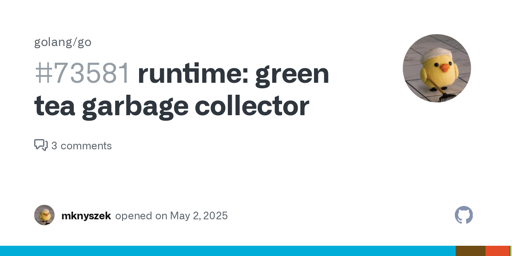Most devs I know like recursion. Trouble is that many popular languages don’t support tail recursion, but throw a stackoverflow error after a few thousand levels. So you have to keep track of max recursion depth manually, and it starts to look like a complicated solution
- 3 Posts
- 30 Comments
Most devs I know like recursion. Trouble is that many popular languages don’t support tail recursion, but throw a stackoverflow error after a few thousand levels. So you have to keep track of max recursion depth manually, and it starts to look like a complicated solution
I don’t know precisely how they are automated, but a pile of applications came in seconds after opening the position. I think I heard talk about online services that you can pay to do the bottling, but cannot remember the name(s). I personally know people who wrote their own bot to do this.
It looks like most applications are from real people, but impossible to tell without a deep vetting honestly. Malicious people running several “fake developer accounts” (for remote work, which is all we do) collecting paychecks until fired, or simply spying, is a known problem in the industry, but not something I have experienced first hand. Yet.
We get 100s of automated applications per day for a position we recently opened. 99% are automated and no where near meeting the requirements. We try to give everyone a review and a reply but it is a massive task, unfortunately. We do not have dedicated personel to handle these matters so it costs engineering time. The current situation for online software dev job application sucks for everyone.
I guess what I am trying to say is: If you don’t get a reply to an application it is likely because you are drowning in noise and someone at the other end is struggling to keep up.
9 times out of 10, this “vibe draft” sends people down a terrible path that they would have never ventured had there been an adult in the room. I swear I review so much code that sets off in the wrong direction because of this, and I am sick of it.
Forgejo supports SSO, and from a quick skim of the diff it looks like they support GitHub and OpenID logins.
X11 is “complete” in the sense that we have followed it to the end of the road. X11 has a series of well documented fundamental problems that does not make it suitable for a modern OS. I will not belabor them here (except to note that security in particulat in X11, is exceptionally weak for modern standars). These issues are unfixable because they are built into core assumptions and behaviours of all legacy apps.
At some point there has to be a switch. There simply is not manpower to maintain 2 separate windowing systems. I am sure we would all want there to be an army of devs working on these things on maintain the 2 stacks. But that is not the timeline we live in. The number of devs working on these things is very low.
Was it too early? I don’t know. There will never be 1-1 feature parity with 30 years of legacy apps. I honestly believe that fixing things like a11y are gonna be much more tenable with only a single windowing system.
For someone who has not used Gnome in 14+ years you sure seem to know a lot about it…
X11 has effectively already been deprecated for years, seeing little to no development on it. No one should be surprised.
And still, there are SEVERAL Long Term Support distros out there that will support X11 for the coming years. Please stop pretending that stuff will start breaking. It will not.
I find that my projects hosted on codeberg are heavily deranked or entirely missing on the top mainstream search engines. My github projects are almost always top 3.
So if it is a library someone might gind useful it has to go in gh. My personal toys can stay on cb.
At least we still have Skype (new), Skype for Enterprise, and Windows Skype

 4·8 months ago
4·8 months agoTargeting vulnerable people based on metadata with any form of commercial intent, is morally and ethically highly questionable! A vulnerable person is by definition extremely susceptible to exploitation. Assuming that companies are gonna act out of philanthropy and goodness of their hearts seems a bit naiive.
Can’t divulge too many details, but one example was when we had 2 options for solving a problem: 1. The “easy” way, storing a bunch small blobs to s3 as a job was running on an embedded device, or 2. The slightly tricky, implement streaming of said data on the device (not as easy as it sounds).
We went with option 1, the easy one, because it was deemed faster bang for the buck. I did some basic math showing that the bandwidth required upload the high number of blobs to s3 within our time budget was not possible on our uplink.
After we spend a month failing on 1., it was clear that we hit the predicted problem. Eventuelly we implement option 2.
Being comfortable with basic back-of-the-envelope math can be a huge benefit. (Full disclosure: i am a math major who is now a programmer)
Over my career I have several examples of projects that have saved weeks worth of dev time because someone could predict the result with some basic calculations. I also have several examples where I have shown people some basic math showing that their idea is never gonna work, they don’t listen and do it anyway, and I see them 1 month later and the project failed in the way i predicted.
A popular (and wise) saying is that “Weeks of work can save you hours of meetings”. I think the same is true for basic math. “Weeks of coding can save you minutes of calculation”.
You can definitely be a successful programmer career without great math skills. Math is a tool that can help you be more effective.

 61·1 year ago
61·1 year agoMust include CHANGELOG…
The changelog:
- misc fixes
- pls work
- fixe a typo

 2·1 year ago
2·1 year agoInteresting observation! The most simple explanation would be that it is memory claimed by the Go runtime during parsing of the incoming bson from Mongo. You can try calling runtime.GC() 3 times after ingest and see if it changes your memory. Go does not free memory to the OS immediately, but this should do it.
2 other options, a bit more speculative:
Go maps have been known to have a bit of overhead in particular for small maps. Even when calling make() with the correct capacity. That doesn’t fit well with the memory profile you posted well, as I didn’t see any map container memory in there…
More probable might be that map keys are duplicated. So if you have 100 maps with the key “hello” you have 100 copies of the string “hello” in memory. Ideally all 100 maps qould share the same string instance. This often happens when parsing data from an incoming stream. You can either try to manually dedup the stringa, see if the mongo driver has the option, or use the new ‘unique’ package in Go 1.23
CrowdSuse
Sorry dude
There is manual memory management, so it seems closer to Zig
There is a dangerously large population of devs and managers that look at themselves, unironically, as the gigachads pumping out ui “upgrades”
Many of these fail to realize how disruptive it is. UI change is like API breakage for the brain.
I have lost track of how many times I’ve tried to help an elderly family member with an app after some pointless, trivial, ui change. Only ending with them entirely giving up on using the app after the “upgrade” because the cognitive overhead of the change is beyond the skill that can fairly be expected for them 💔








This is just incorrect, sorry to break the news. Most modern electric cars are hardwired to phone home. In most models the surveillance is fused directly into critical components like the fuel pump or the braking system. You cannot just pull out some wires in the dashboard. If you disconnected these things the car is unlikely to work. These details have been covered by people who have worked in the industry